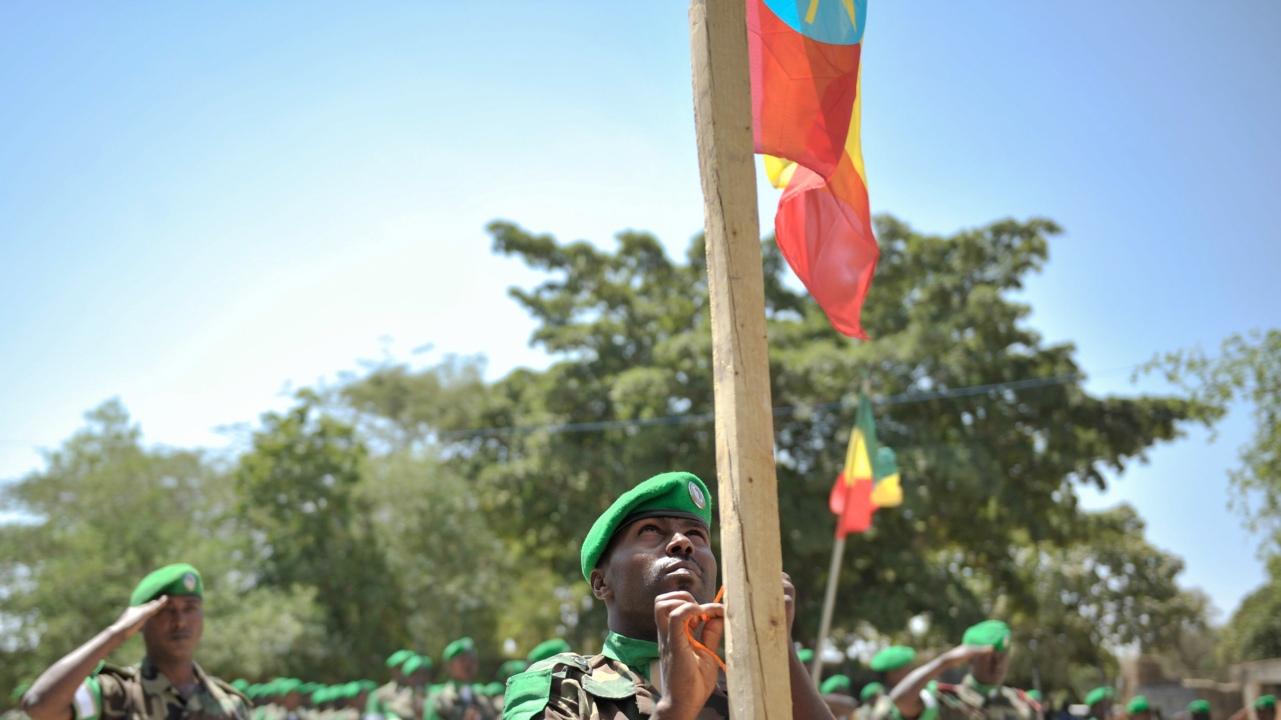This is a unique and compelling account that effectively intertwines the biographical account of George Omona (fictional name) – a young man who voluntarily joined and fought for the Lord’s Resistance Army (LRA) in Central African Republic, South Sudan and Eastern Congo between 2007 and 2010 before escaping – with the wider narrative of an ongoing conflict. Jamie Hitchen describes this volume as an important addition to the literature on the LRA and rebel groups more broadly.
George’s account of life in the LRA, which has been corroborated by extensive interviews, is engrossing. Ledio Cakaj has done a fine job of turning his conversations with George into a highly readable narrative that provides fascinating insights into the daily hardships and battle for survival within the rebel group.
 Through George’s eyes we learn about the sophisticated operations of the LRA and its leader Joseph Kony. The account relates how, in times of relative peace, they have been able to establish camps and farm; the way they communicate internally across national borders; and the strict hierarchical structure of the group, with defined roles for members. It also describes the way in which Kony and his followers have pillaged local communities in the quest to survive, and how they have continually fought (and been able to flee) the Uganda People’s Defence Force (UPDF) despite its clear training and technological advantages.
Through George’s eyes we learn about the sophisticated operations of the LRA and its leader Joseph Kony. The account relates how, in times of relative peace, they have been able to establish camps and farm; the way they communicate internally across national borders; and the strict hierarchical structure of the group, with defined roles for members. It also describes the way in which Kony and his followers have pillaged local communities in the quest to survive, and how they have continually fought (and been able to flee) the Uganda People’s Defence Force (UPDF) despite its clear training and technological advantages.
I was struck by several things. Firstly, the hardship experienced by LRA fighters and alluded to in the book’s title: the distances covered daily are staggering. Food and water emerge as both a driver of the conflict – raids on villages were often motivated more by the need for sustenance than the taking of captives – and the essence of bonds. Shared experiences of hardship, which included subjection to the LRA’s brutal system of internal discipline, helped forge a sense of collective identity.
Secondly, mistrust between fighters was deep and exemplified by the conduct of Kony himself. George, who gradually becomes more distanced from the group’s leader as his time in “the bush” wears on, talks about how Kony was constantly on the move to counter real and perceived threats. Very few people knew where he would be at a particular day or time. George also exposes Kony’s ruthlessness in ridding himself of anyone whose loyalty was suspect, the most famous example being the execution of his deputy, Vincent Otti, who had been with the LRA from the outset.
The way fear and mistrust permeated through the rank and file is highlighted by George’s agonising over whether to share his intention to escape with three other fighters with whom he becomes separated. He knows that the punishment for attempted desertion is death and it takes him almost three months to find the “right” moment to mention his plan.

Finally, it is very interesting to trace the evolution of George’s mind-set towards violence, from initial apprehension to accepting it as part and parcel of daily life. It is noticeable that descriptions of violence become progressively less of a feature of the narrative and the justification for its use more accepted. This raises a pertinent question for judicial cases in Uganda about whether those indoctrinated in the LRA “way of life” as children – and it is striking how many of George’s fellow fighters are said to be in their early teenage years – can be held accountable for killings when adult. In this context, the case against Dominic Ongwen at the International Criminal Court may prove to be illustrative.
The book left some questions unanswered. Although the early chapters are devoted to providing some background to George’s childhood in northern Uganda, the reasons for him voluntarily choosing to join the LRA are not explained convincingly. It is perhaps understandable that George is less willing to reflect on his choices. Towards the end of the book he talks about how keen he is to move on with rebuilding his life and to forget the whole experience; and the author clearly has some “duty of care” to preserve George’s personal wellbeing. However, if greater reflection on his experiences could have been teased out the account would have been enhanced.
For a reader unfamiliar with the LRA conflict and the wider politics of the region insufficient background is provided. More could have been said about how Ugandan troops were perceived by the communities they encounter in their pursuit of the LRA. This is an important issue considering that one of the unaddressed legacies of the conflict in northern Uganda (1987-2006) are the injustices inflicted by the Ugandan military that have been ignored by the government and have contributed to a “negative peace”. Nevertheless, by drawing on a unique and fascinating insider perspective, that of an LRA foot soldier, Cakaj has delivered an important addition not only to the literature on the LRA but rebel groups more broadly.
When the Walking Defeats You: One Man’s Journey as Joseph Kony’s Bodyguard. Ledio Cakaj. Zed Books. 2016.
Ledio Cakaj will be speaking at LSE on Wednesday 23 November. Register to attend this event via Eventbrite.
Jamie Hitchen (@jchitchen) is Policy Researcher at Africa Research Institute.
The views expressed in this post are those of the author and in no way reflect those of the Africa at LSE blog or the London School of Economics and Political Science.





